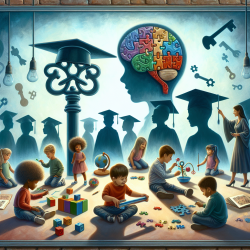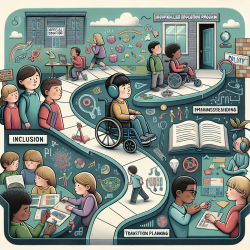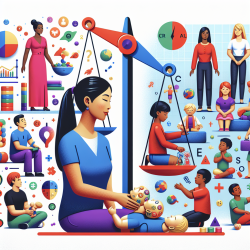Introduction
In the quest to enhance educational outcomes, understanding the early determinants of school achievement is crucial. Recent research, particularly the study titled "A sequential model of the contribution of preschool fluid and crystallized cognitive abilities to later school achievement," provides valuable insights into how preschool cognitive abilities influence later academic success.
Key Findings
The study highlights the significant role of preschool crystallized abilities—knowledge-based competencies like letter and number knowledge—in predicting school achievement. These abilities are pivotal in the early school years and mediate the relationship between fluid abilities, such as problem-solving skills, and later academic performance.
Interestingly, while fluid abilities have a modest direct impact on school achievement in later grades, their primary influence is through the development of crystallized abilities. This underscores the importance of nurturing both types of cognitive skills during preschool years.
Implications for Practitioners
For practitioners, these findings suggest a dual focus in early childhood education:
- Enhancing Crystallized Abilities: Emphasize activities that build foundational knowledge in numbers, letters, and basic concepts. This can be achieved through structured play, interactive reading sessions, and engaging educational games.
- Developing Fluid Abilities: Encourage activities that promote problem-solving, cognitive flexibility, and memory skills. This includes puzzles, strategic games, and activities that require children to think critically and adaptively.
Encouraging Further Research
While the study provides a robust framework, there is room for further exploration. Future research could investigate the long-term impact of early cognitive interventions and how these abilities interact with environmental factors like socio-economic status and educational settings.
Moreover, understanding the genetic and environmental influences on these cognitive abilities could offer deeper insights into personalized educational strategies.
Conclusion
By integrating these findings into practice, educators and therapists can significantly impact children's academic trajectories. The evidence underscores the value of early intervention and targeted educational strategies to foster both fluid and crystallized cognitive abilities.
To read the original research paper, please follow this link: A sequential model of the contribution of preschool fluid and crystallized cognitive abilities to later school achievement.










